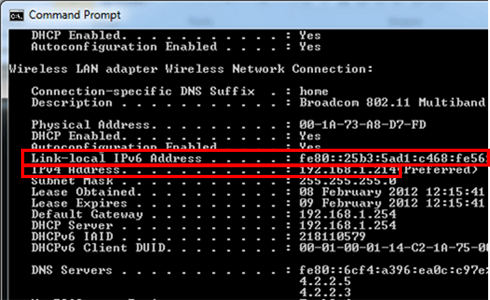
Introduction:
In today’s digital landscape, safeguarding online assets and maintaining cybersecurity is of paramount importance. One crucial aspect of cybersecurity is monitoring the reputation of IP addresses. An IP address reputation check involves assessing the trustworthiness and reliability of an IP address based on its past behavior and associations. This process helps organizations identify potential threats, prevent malicious activities, and protect their networks and online resources from cyberattacks. In this comprehensive guide, we will explore the fundamentals of IP address reputation checks, including their significance, how they work, and best practices for conducting them effectively. By understanding and implementing IP address reputation checks, individuals and organizations can enhance their cybersecurity posture and safeguard against various online threats.
What is an IP address reputation check, and why is it important?
An IP address reputation check involves evaluating the trustworthiness and reliability of an IP address based on its historical behavior and associations. It helps identify potential threats, such as spam, malware, or malicious activity originating from specific IP addresses. This proactive approach allows organizations to block or mitigate potential risks, protect their networks and online assets, and maintain a secure online environment.
How does an IP address reputation check work?
IP address reputation checks utilize various methods, including analyzing IP addresses’ past behavior, monitoring for suspicious activities, and comparing against known threat databases. Automated tools and services assess factors like email sending practices, web traffic patterns, and historical data to assign reputation scores to IP addresses. These scores determine whether an IP address is trustworthy or potentially harmful, enabling organizations to make informed decisions about allowing or blocking connections from specific addresses.
Understanding IP Address Reputation:
An IP address reputation refers to the perceived trustworthiness and reliability of an IP address based on its past behavior and activities. Just like individuals build reputations based on their actions, IP addresses develop reputations based on their online behavior.
Importance of IP Address Reputation Checks:
IP address reputation checks play a vital role in cybersecurity and online risk management. By evaluating the reputation of incoming IP addresses, organizations can identify potential threats, such as spam emails, phishing attempts, or malicious activity.
How IP Address Reputation Checks Work:
IP address reputation checks utilize sophisticated algorithms and databases to analyze various factors associated with an IP address. These factors may include the volume of emails sent from the IP address, the presence of malware or suspicious activities, and the IP address’s association with known malicious entities.
Benefits of IP Address Reputation Checks:
Implementing IP address reputation checks offers several benefits, including:
- Enhanced Security: By identifying and blocking malicious IP addresses, organizations can protect their networks and systems from cyber threats.
- Reduced Risk: Proactively monitoring IP address reputations helps mitigate the risk of falling victim to phishing scams, malware attacks, or other cybercrimes.
- Improved Deliverability: For email senders, maintaining a positive IP address reputation can enhance email deliverability rates and ensure that legitimate messages reach recipients’ inboxes.
Tools and Services for IP Address Reputation Checks:
Various tools and services are available to conduct IP address reputation checks. These include:
- IP Reputation Databases: Organizations can subscribe to IP reputation databases that provide real-time information about the reputations of different IP addresses.
- Security Platforms: Many cybersecurity platforms offer IP address reputation checking as part of their security solutions, allowing organizations to integrate reputation checks into their existing cyber security protocols.
Best Practices for IP Address Reputation Management:
To maintain a positive IP address reputation, organizations should:
- Regularly monitor IP address reputations using automated tools and services.
- Implement robust cybersecurity measures to prevent unauthorized access and mitigate potential threats.
- Stay informed about emerging cybersecurity threats and adjust their security protocols accordingly.
FAQS
1: Can IP address reputation checks prevent all cyber threats?
While IP address reputation checks are valuable tools for identifying and mitigating cyber threats, they cannot prevent all types of attacks. Sophisticated attackers may employ techniques to evade detection, making it essential for organizations to complement IP address reputation checks with other cybersecurity measures such as intrusion detection systems, firewalls, and employee training programs.
2: How often should organizations conduct IP address reputation checks?
It’s recommended that organizations perform IP address reputation checks regularly, ideally in real-time or at least on a daily basis. This frequency ensures that organizations stay updated on the reputations of incoming IP addresses and can promptly respond to any emerging threats or suspicious activities. Additionally, organizations should conduct thorough checks before establishing connections with new partners or engaging in transactions with unfamiliar entities to mitigate potential risks.
Final Thoughts:
Maintaining a vigilant approach to monitoring IP address reputations is paramount in safeguarding against cyber threats and maintaining a secure online environment. By leveraging IP address reputation checks, organizations can proactively identify and block malicious entities, reducing the risk of data breaches, fraud, and other cyber attacks. However, it’s important to recognize that IP address reputation checks are just one component of a comprehensive cybersecurity strategy. Employing a layered approach that includes robust security protocols, regular software updates, employee training, and incident response plans is essential for effectively mitigating cyber risks. By staying proactive, informed, and adaptable, organizations can better protect their digital assets and ensure the integrity and trustworthiness of their online activities.
